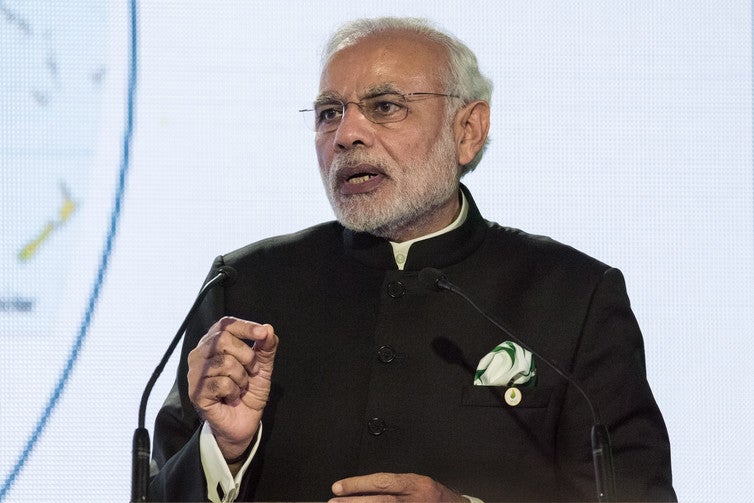India must be more transparent about disease threats
The first case of Zika in India was discovered in November 2016. Why was the public not informed about it?

Your support helps us to tell the story
From reproductive rights to climate change to Big Tech, The Independent is on the ground when the story is developing. Whether it's investigating the financials of Elon Musk's pro-Trump PAC or producing our latest documentary, 'The A Word', which shines a light on the American women fighting for reproductive rights, we know how important it is to parse out the facts from the messaging.
At such a critical moment in US history, we need reporters on the ground. Your donation allows us to keep sending journalists to speak to both sides of the story.
The Independent is trusted by Americans across the entire political spectrum. And unlike many other quality news outlets, we choose not to lock Americans out of our reporting and analysis with paywalls. We believe quality journalism should be available to everyone, paid for by those who can afford it.
Your support makes all the difference.The first laboratory confirmed case of Zika in India was detected in a hospital in Ahmedabad, Gujarat, on 9 November 2016. A further two cases were subsequently confirmed – one in January 2017 and another in February. Yet none of these cases were reported to the World Health Organisation (WHO) until 15 May.
Why the government decided against publicly announcing these cases for nearly six months after first confirming them is unclear, but it reflects ongoing low levels of transparency in India’s public health system. Not surprisingly, India ranked second to last in a recent study of transparency in health systems across 32 countries.
The WHO strongly encourages governments to quickly report potential and actual public health threats so that the problem can be nipped in the bud. But, for various reasons, some countries fail to comply. Reasons for doing so include potentially negative impacts on business and tourism, loss of public confidence and negative impacts on the career prospects of politicians.
In 2003, China withheld information about a major SARS outbreak, which put its own public and those of other countries under grave risk. Other countries might have fewer human, economic or infrastructure resources than China and so are unable to detect and report cases on time. India’s disease surveillance system is vast, but it is limited by a fragmented structure and lack of coordination.
Valid justification?
Indian officials justified not informing the WHO within 24 hours – a requirement under international health regulations – by citing the WHO’s declassification of Zika as a public health emergency of international concern in November 2016. The director general of the Indian Council of Medical Research further clarified that the government chose to avoid creating panic.
But other facts emerged that raised suspicions. Authorities chose to withhold the information from even the local civic authorities who could have swiftly prepared local communities to undertake preventive measures. The authorities conducting Zika surveillance also misinformed some of the public that the tests were for malaria. The authorities also excluded Zika cases from the official infectious disease monitoring and reporting website even after news of the cases was released.
Unused resources
The Indian government developed a communication plan to tell the public about Zika before the first laboratory Zika case was identified last November. What is puzzling is why they chose not to put this plan into action and spread word about their control measures through the media – which, in India, is enormous and far-reaching. If they had, they might have reassured the public that everything was under control.

Since assuming office in May 2014, India’s prime minister, Narendra Modi, has repeatedly spoken about his vision for a “digital India”. But the mobile apps, social media accounts and slick websites that the government created in order to increase transparency and communication with its citizens, were left untouched as the Zika cases emerged. Instead, the public learned about this important health threat from the WHO.
The importance of transparency
A lack of transparency on critical matters of public health can lead to a loss of trust in the government and suspicion among the public. For instance, media reports suggested that the government was silent about the Zika cases as it might have negatively affected business (an international business summit was held in Gujarat around the time the second case emerged).
Risk communication experts point to the importance of transparency – through clear, constant communications – in building public trust during a disease outbreak. A lack of trust makes it tougher for governments to manage future outbreaks efficiently.
With few Zika cases and a comprehensive surveillance system, India is fortunate to have avoided disaster – so far. But the threat of a larger outbreak in India, and in neighbouring countries, is still very real.
The Indian government may have failed in its duty to report a public health threat, but it’s not too late to learn from this experience. Doing so will offer them an opportunity to set an example to other low and middle-income countries, and strengthen its position as a responsible player in global health. Compromising on transparency, on the other hand, will imperil India and its neighbours, and may even have global ramifications.
Santosh Vijaykumar is the vice chancellor’s senior research fellow in digital health at Northumbria University, Newcastle. This article was originally published on The Conversation (www.theconversation.com)
Join our commenting forum
Join thought-provoking conversations, follow other Independent readers and see their replies
Comments